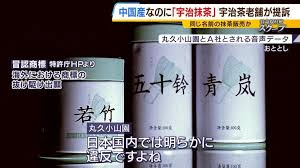
On September 1, Chinese Minister of Agriculture Tetsuro Nomura apologized for calling the treated water from TEPCO’s Fukushima Daiichi nuclear power plant “contaminated water,” and Wang Wenbin, a spokesman for the Chinese Foreign Ministry, sarcastically stated at the beginning of the article, “The Chinese government has been trying its best so far to prevent the contamination of water.
The Chinese government has stubbornly called the treated water “nuclear contaminated water” and attacked its discharge into the sea as “the worst environmental destruction.
This “anti-treated water” movement has spread among the Chinese population, and there has been a dramatic increase in the number of “ita-den” protests in Chinese against restaurants in Fukushima Prefecture and the central government. (International Journalist)
Compared to the calm response of Western countries, South Korea, and Southeast Asia, China’s “treated water bashing” is extraordinary. However, …….
On August 29, there was a huge line of 70 people waiting to enter the Mong Kok branch of Sushiro in Hong Kong. Most of the customers were young couples.
Hisashi Kakuwaki, a journalist living in Hong Kong, said, “The number of customers is mostly young couples. This magazine then went to a Japanese restaurant a few days after the release of treated wastewater. What emerged was a picture of many people who were not fooled by the “falsehoods” of the Chinese Communist Party.
When Mr. Kakuwaki spoke to a male office worker in his 20s standing in line who said he was a regular customer of Sushiro, he replied, “I saw the news about the release of the treated water,
He said, “I saw the news about the release of treated water, but I don’t mind it at all. The number of customers is the same as before. I like Sushiro so much that when I travel to Japan, I go to eat at the original Sushiro, so I will continue to go there.
I will continue to go there,” he said, explaining his love for Sushiro. In addition, “Genki Sushi,” which operates within the same tenant, was packed with customers.
I went there for lunch, and there were many mothers with their children. In Hong Kong, imports of Japanese seafood from 10 prefectures, including Fukushima, are banned.
On the other hand, high-end Japanese restaurants run by local residents for Hong Kong residents and Chinese people have been affected.
The number of customers is still decreasing. Some other Japanese restaurants have seen their customer numbers drop by half. In particular, the number of customers ordering sashimi and sushi, which use raw fish, has decreased. Purchasing is also difficult. However, we expect the number of customers to return in two to three months,” said a floor manager.
Even among the Japanese community living in China, “optimism” prevails.
“Japanese companies have decided from past experience that it is dangerous to be ‘conspicuous’ and are pulling out of advertising all together. However, it is much better than 11 years ago, when relations between Japan and China were stormy over the nationalization of the Senkaku Islands. At that time, there were so many attacks against the Japanese people, and I was victimized. This time, many people are cool-headed enough to criticize the Japanese government for deciding to release the islands,” said the president of a consulting firm.
There also seems to be a big difference between generations.
I don’t mind it at all, but my parents, who are in their 60s, are angry, saying, ‘We won’t eat Japanese food or travel to Japan anymore. But they will soon forget about it. In fact, after the Great East Japan Earthquake, my parents said, ‘Japan is contaminated by radiation,’ but a few years later they traveled to Japan and happily ate sushi! Older people are more likely to believe government news.” (A woman in her 40s who works at a language school in Shanghai)
A “Japanophile” man in his 30s who has studied in Japan is angry that many of his friends criticized him and forced him to delete a post on a social networking site criticizing people who buy salt to protect themselves from radiation.
He said, “People who are highly educated and capable of making decisions for themselves are not misled. Frankly, I have the impression that only people with low incomes and dissatisfied with their lives are being misled.
Mr. Kakuwaki also analyzed Xi Jinping’s hard-line stance this time.
The bankruptcy of the Hengda Group, for example, has made an increasing number of people anxious about the stalemate in the Chinese economy. The “war-wolf diplomacy” of biting aggressively at Japan and the U.S. is, so to speak, a way of venting the frustration and resentment of these people.
However, it has not resulted in a united anti-Japanese movement. It probably means that more and more people are looking at Xi Jinping’s “people control tactics” with a cold eye.”
The war-wolf diplomacy is also “self-destructing” economically. Mr. Xu, a Chinese owner of a wholesale store in Shanghai’s largest seafood market, laments, “The zero-colonization that has been going on for the past few years has been a real problem.
The seafood market has been in a recession for a long time due to the zero-corona policy that has been in effect for the past few years. This year, sales were on a recovery trend, but now they are falling again. Because of the contaminated water reports, the image of seafood itself has been tarnished, and seafood from China is not selling as well. ……”
Good sushi in Japan is stronger than a hoax.
( Weekly FLASH, September 19, 2023 issue )






